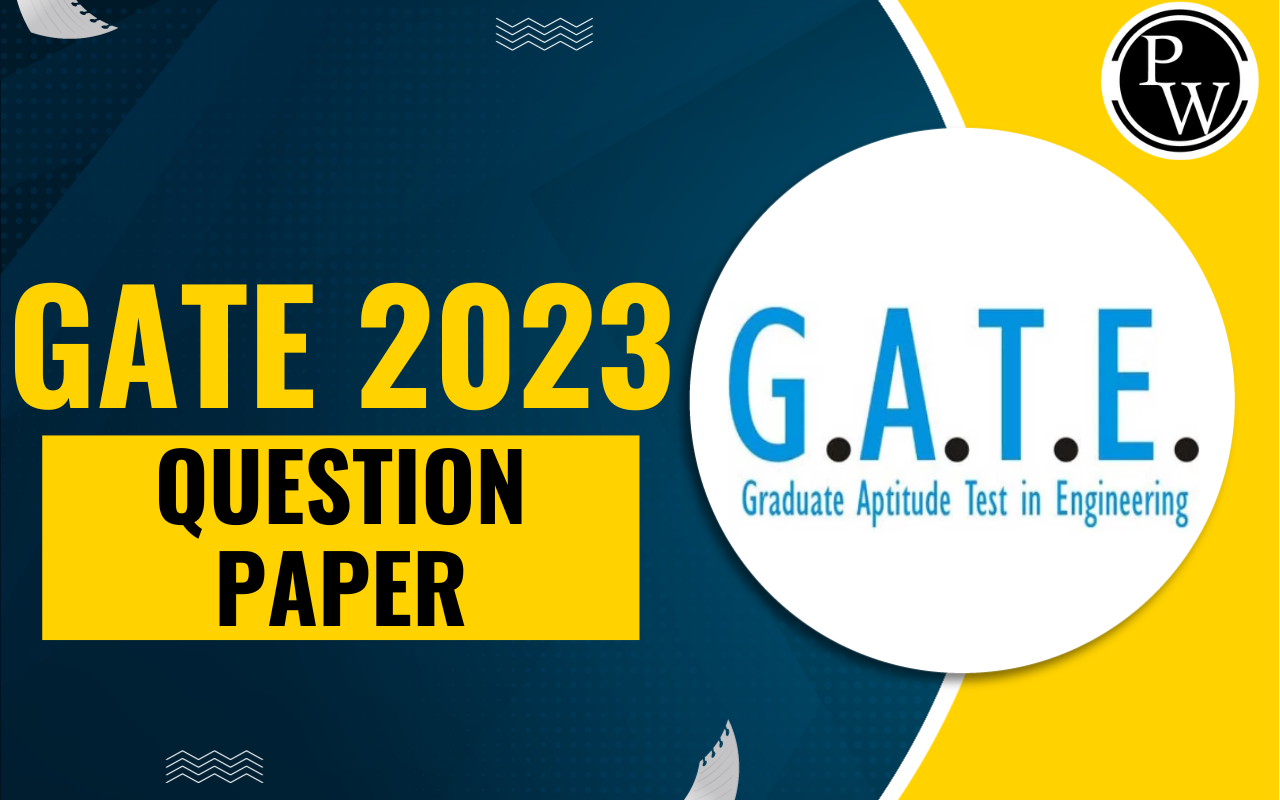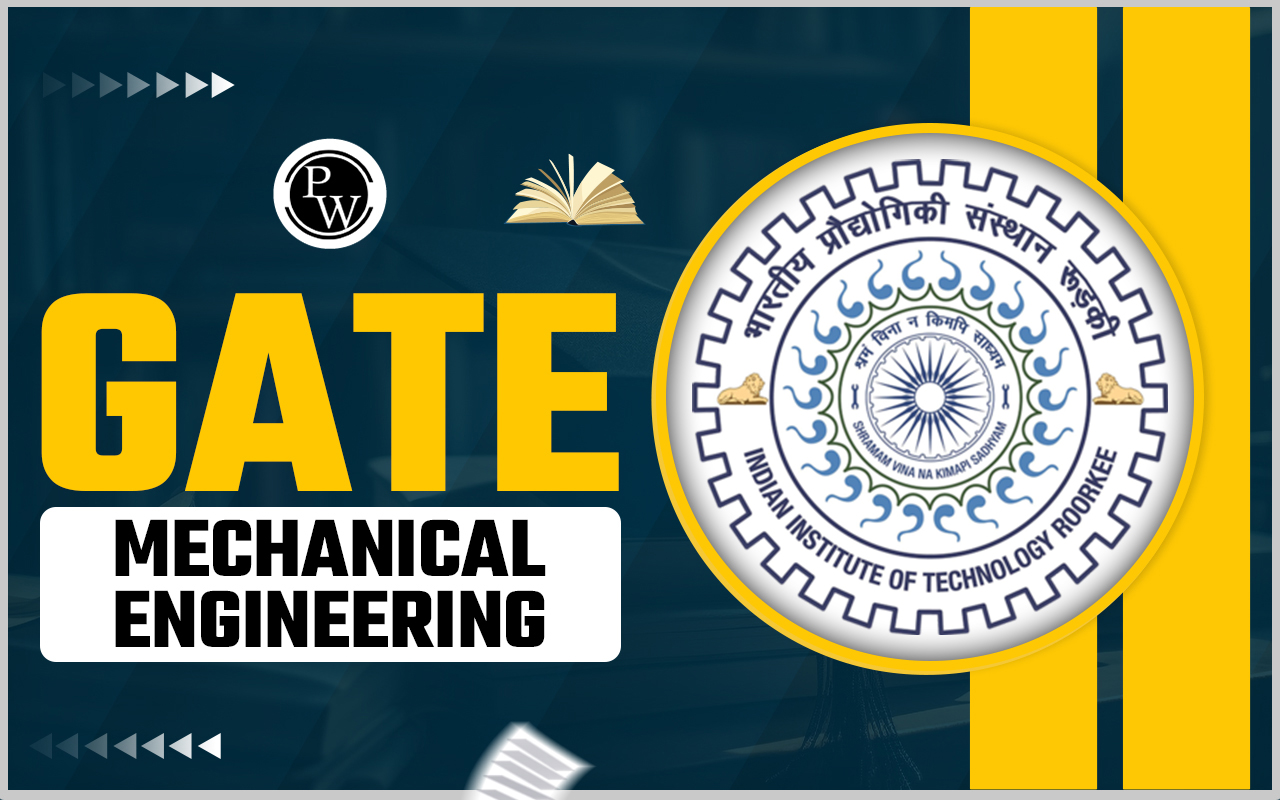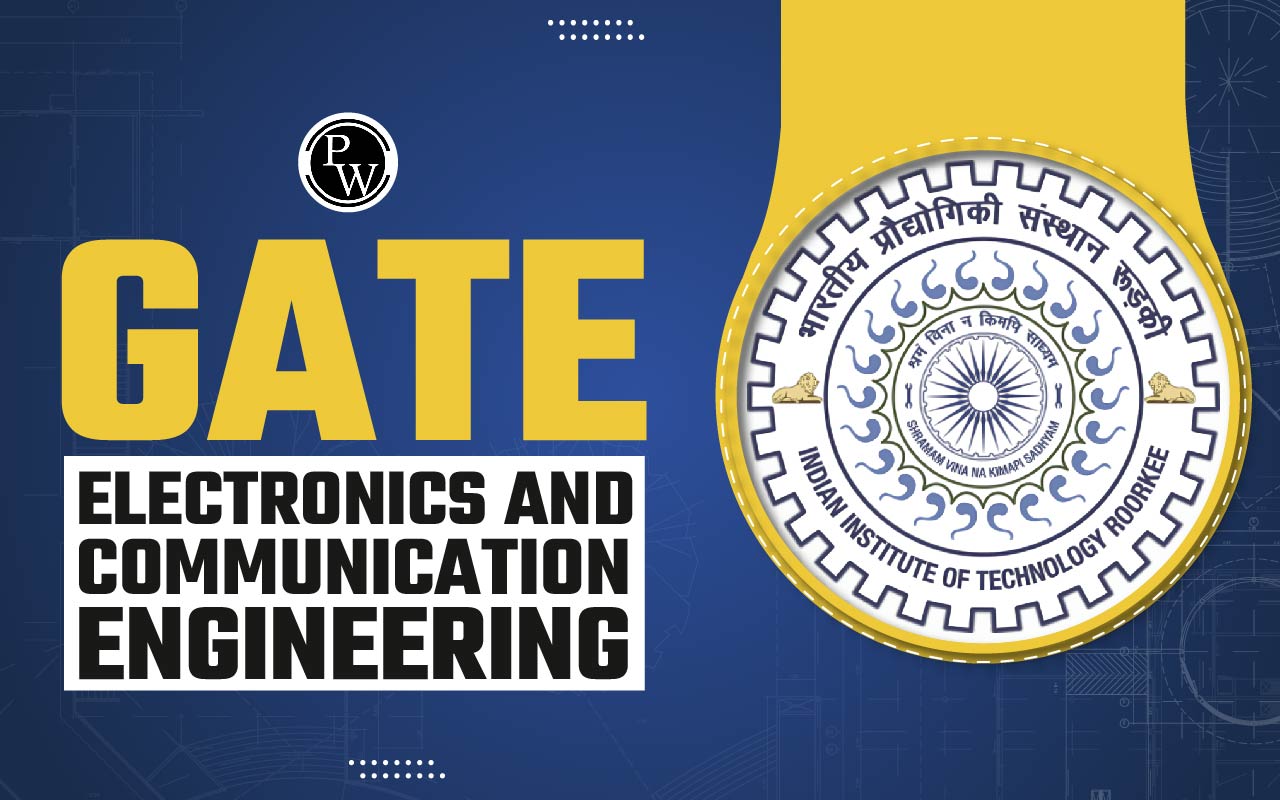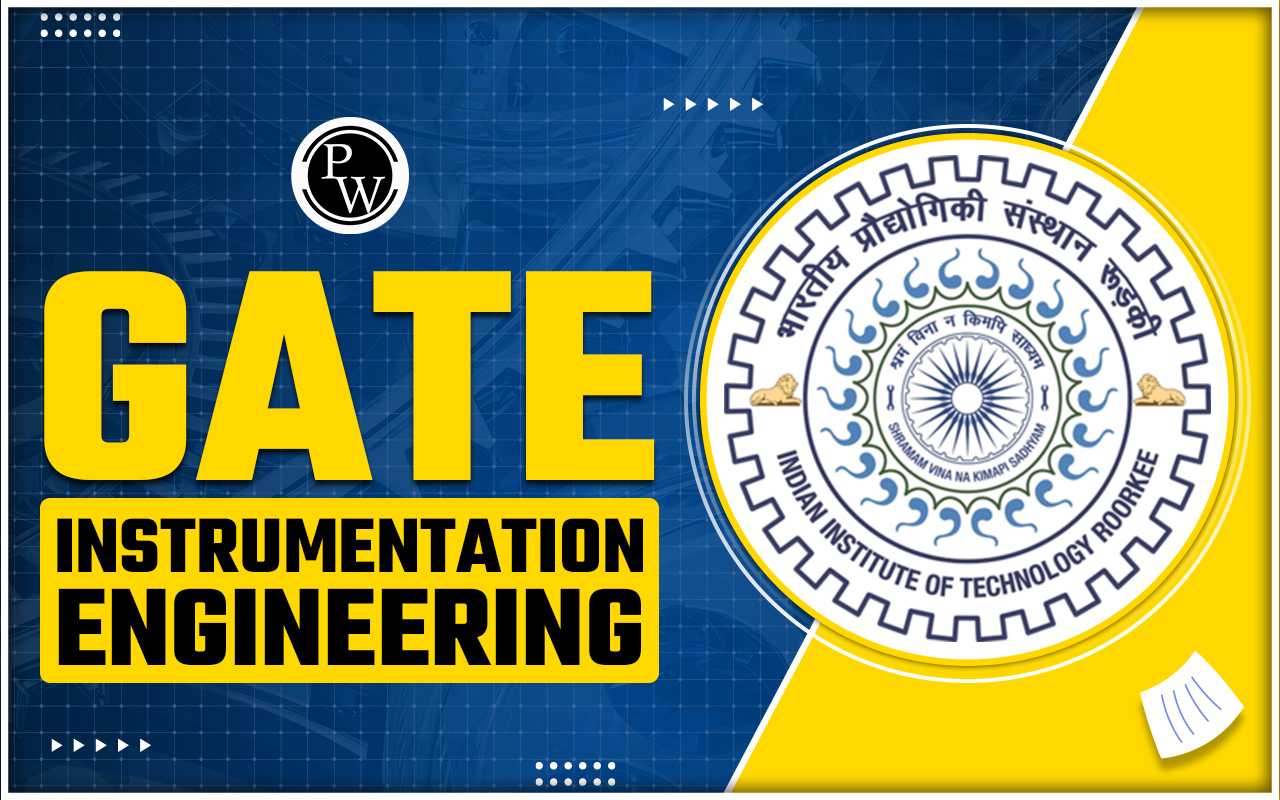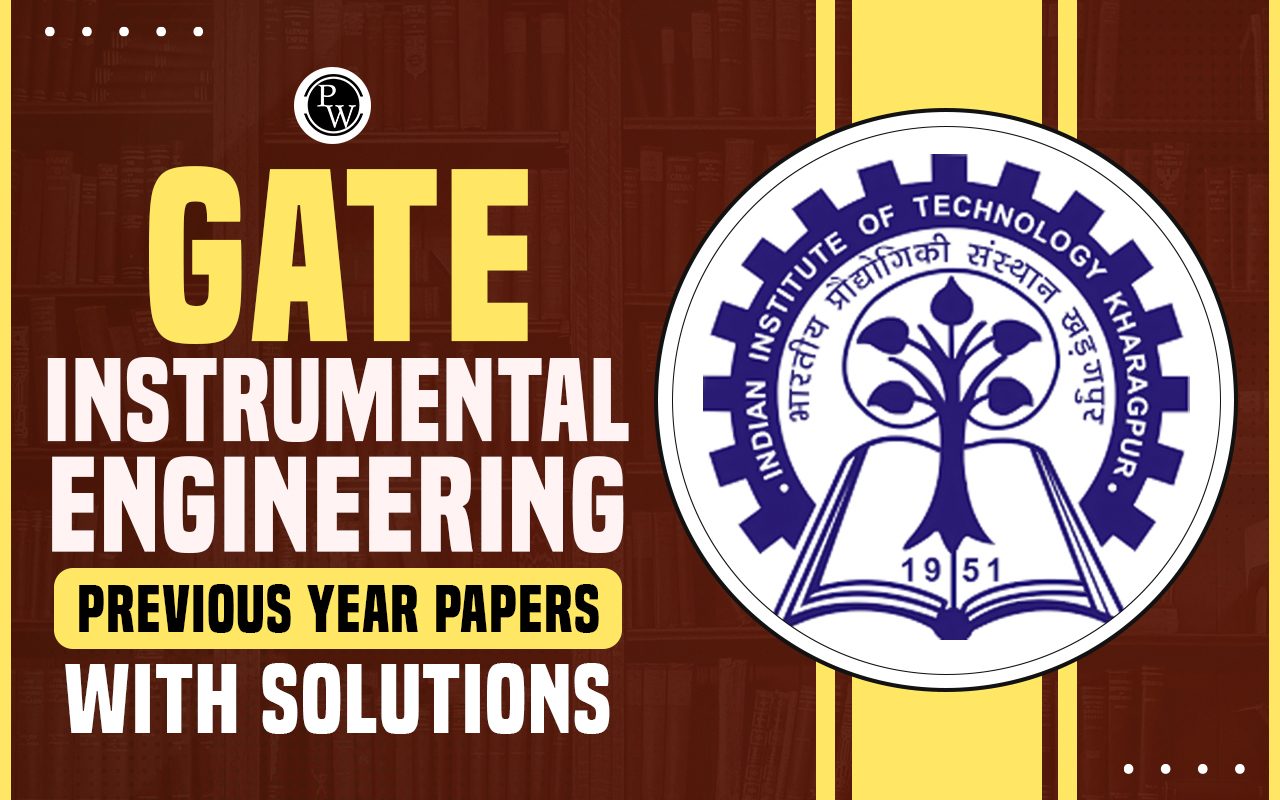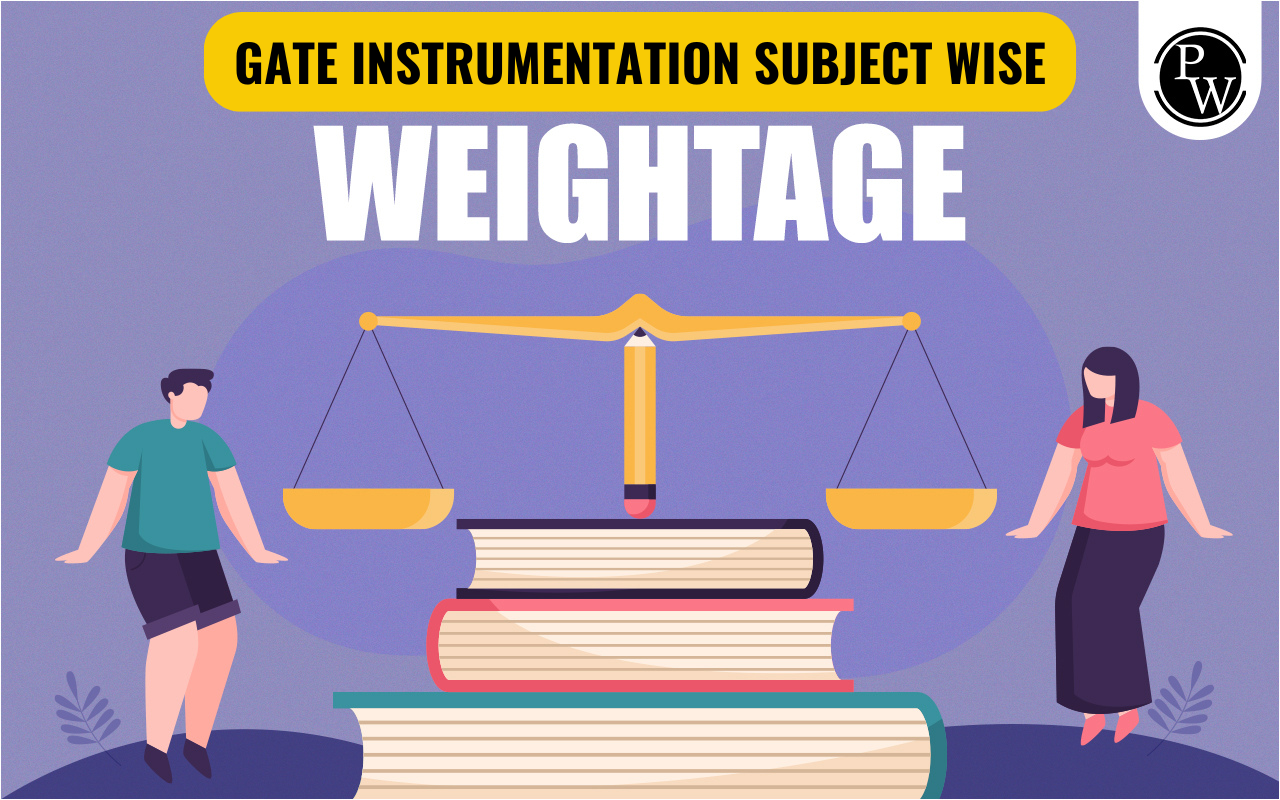
GATE Instrumentation Subject Wise Weightage 2026: The GATE Instrumentation subject wise weightage holds significant importance for candidates to prepare for the exam effectively. IIT Guwahati, is going to host the GATE 2026 exam for the Gate Instrumentation branch in February 2026 .
Before starting preparation, it is crucial for candidates to carefully review the extensive GATE Instrumentation subject wise Weightage to know key focus areas which cover higher weightage. In this article, you can find the comprehensive GATE IN Subject Wise Weightage to strategize the preparation.
Check: GATE Instrumentation Engineering Syllabus 2026
GATE Instrumentation Subject wise Weightage 2026 Overview
The GATE Instrumentation Engineering (IN) 2026 exam allocates 72% of the total marks to core instrumentation subjects, 15% to General Aptitude, and 13% to Engineering Mathematics. The subject-wise distribution helps candidates prioritize their preparation for high-yield areas. Here is the GATE IN 2026 Expected Subject Wise Weightage.
|
GATE Instrumentation Subject wise Weightage 2026 Overview |
|
|---|---|
|
Subject |
Expected Weightage (%) |
|
General Aptitude |
15 |
|
Engineering Mathematics |
11.75 |
|
Analog Circuits |
11.75 |
|
Circuits and Networks |
10.25 |
|
Measurements |
6.25 |
|
Communications |
1.5 |
|
Signals and Systems |
7.75 |
|
Control Systems |
10.75 |
|
Transducers |
12.25 |
|
Digital Circuits |
7 |
|
Analytical, Biomedical & Optical Instrum. |
4.25 |
|
Process Controls |
1.5 |
GATE Instrumentation Subject wise Weightage Analysis
The table below contains the GATE Instrumentation subject wise weightage analysis for the GATE 2025, 2024, 2023, 2022, 2021, and 2020 exams. Candidates may find number one and two mark questions in every subject.
The subject weightage as determined by the GATE Instrumentation paper analysis is also provided. The weightage of marks for each section of the GATE ECE Exam is shown below. These figures are based on an examination of GATE previous year question papers .
|
GATE Instrumentation Subject wise Weightage Analysis |
|||||||
|---|---|---|---|---|---|---|---|
|
Sl. No. |
Subject |
2025 |
2024 |
2023 |
2022 |
2021 |
2020 |
|
1. |
Digital Electronics |
7 |
7 |
7 |
5 |
8 |
4 |
|
2. |
Signals & Systems |
5 |
5 |
5 |
5 |
5 |
5 |
|
3. |
Electrical Circuits |
6 |
7 |
7 |
5 |
0 |
3 |
|
4. |
Control Systems |
8 |
7 |
7 |
5 |
5 |
10 |
|
5. |
Sensor & Industrial Instrumentation |
7 |
7 |
2 |
7 |
8 |
8 |
|
6. |
Measurements |
6 |
6 |
6 |
6 |
6 |
8 |
|
7. |
Communication Systems |
2 |
2 |
1 |
3 |
3 |
0 |
|
8. |
Analog Electronics |
6 |
6 |
6 |
6 |
3 |
4 |
|
9. |
Optical Instrumentation |
2 |
2 |
2 |
2 |
2 |
2 |
|
10. |
Process Control Instrumentation |
1 |
1 |
0 |
1 |
1 |
0 |
|
11. |
Electricity and Magnetism |
2 |
1 |
1 |
1 |
4 |
0 |
|
12. |
Electric Machine |
2 |
2 |
2 |
1 |
3 |
0 |
|
13. |
Engineering Mathematics |
9 |
9 |
9 |
8 |
7 |
11 |
|
14. |
General Aptitude |
10 |
10 |
10 |
10 |
10 |
10 |
|
Total Questions |
65 |
65 |
65 |
65 |
65 |
65 |
|
GATE Instrumentation Subject wise Weightage of Core Subjects
The core subjects play an essential role in the GATE Instrumentation Engineering Examination . The exam is designed to test a candidate's understanding and knowledge of the fundamental concepts of instrumentation engineering.
Control systems, measurement and instrumentation, analog electronics, digital electronics, signal processing, and communication are the core subjects of the GATE 2026 Instrumentation Engineering Exam. These subjects carry a weightage of around 70% to 75% in the question paper. Candidates must be well-versed in these core topics to score well in the exam.
Thus, candidates should focus on mastering these subjects during their preparation for the exam. They must create a study plan that covers each subject thoroughly, along with practice tests and previous year question papers. Candidates must also keep themselves updated with recent advancements in technology related to these topics.
|
GATE Instrumentation Core Subjects Weightage (2015 - 2025) |
|||||||||||
|---|---|---|---|---|---|---|---|---|---|---|---|
|
GATE Instrumentation Engineering Subjects |
2015 |
2016 |
2017 |
2018 |
2019 |
2020 |
2021 |
2022 |
2023 |
2024 |
2025 |
|
Analog Electronics |
13 |
10 |
13 |
12 |
11 |
9 |
8 |
6 |
6 |
6 |
6 |
|
Communication |
3 |
6 |
4 |
1 |
5 |
0 |
2 |
3 |
1 |
2 |
2 |
|
Control Systems |
8 |
9 |
8 |
8 |
14 |
13 |
5 |
5 |
7 |
7 |
8 |
|
Digital Circuits |
9 |
12 |
4 |
9 |
8 |
8 |
8 |
5 |
7 |
7 |
7 |
|
Engineering Mathematics |
8 |
14 |
10 |
14 |
10 |
15 |
7 |
8 |
9 |
9 |
9 |
|
General Aptitude |
15 |
15 |
15 |
15 |
15 |
15 |
10 |
10 |
10 |
10 |
10 |
|
Measurements |
6 |
8 |
10 |
10 |
5 |
12 |
6 |
6 |
6 |
6 |
6 |
|
Network Theory |
11 |
9 |
11 |
9 |
8 |
8 |
0 |
5 |
7 |
7 |
6 |
|
Optical Instrumentation |
10 |
4 |
2 |
6 |
7 |
4 |
2 |
2 |
2 |
2 |
2 |
|
Process Control |
0 |
0 |
2 |
0 |
0 |
0 |
1 |
1 |
0 |
1 |
1 |
|
Signals and Systems |
7 |
6 |
11 |
8 |
8 |
8 |
5 |
5 |
5 |
5 |
5 |
|
Transducers |
10 |
7 |
10 |
8 |
9 |
8 |
8 |
7 |
2 |
7 |
7 |
GATE Instrumentation Subject wise Weightage of General Aptitude and Engineering Mathematics
The General Aptitude and Engineering Mathematics section in the GATE Instrumentation Engineering Exam holds a weightage of 15 marks out of the total 100 marks. This section is common to all GATE papers and focuses on testing the candidate's aptitude skills and mathematical abilities. The purpose of this section is to assess the student's capability to deal with complex mathematical problems that are relevant to engineering.
This section includes topics such as data interpretation, verbal ability, numerical reasoning, and analytical reasoning. The questions in this section are designed to test the basic knowledge of mathematics, which includes topics like differential equations, linear algebra, calculus, probability theory, and statistics. Solving previous years' papers can help one understand the types of questions that can be expected in this section.
It is important for students who aspire to crack the GATE Instrumentation Engineering Exam to have a strong grip on basic maths concepts as well as good comprehension skills. Strengthening these areas will improve overall performance and increase the chances of success in this exam.
| GATE Instrumentation Engineering Subjects | Weightage in percentage |
| General Aptitude (GA) | 15% |
| Engineering Mathematics | 13% |
| Instrumentation Engineering | 72% |
| Total | 100% |
Topics Wise GATE Instrumentation Subject wise weightage 2026
The topic-wise weightage for the GATE Instrumentation Engineering paper is tabulated for your reference:
| Topics | Expected Number of questions | Expected Marks |
| Engineering Mechanics | 4 | 6 |
| Mechanics of Material | 7 | 11 |
| Machine Design | 2 | 3 |
| Theory of Machines | 5 | 8 |
| Heat Transfer | 4 | 7 |
| Fluid Mechanics | 6 | 9 |
| Manufacturing Engineering | 8 | 11 |
| Industrial Engineering | 2 | 4 |
Previous Year's GATE Instrumentation Engineering Exam Paper Analysis
The Analysis of the Previous Years’ GATE Instrumentation Engineering Exam Paper can give a glimpse of the exam pattern and difficulty level. In the past years, the exam has been moderate to tough level, with a mix of conceptual questions and numerical problems.
Tips and Tricks for Cracking GATE Instrumentation Engineering Exam
Cracking the GATE 2026 Instrumentation Engineering Exam requires a lot of hard work, dedication, and preparation. Here are some tips and tricks that can help you crack the exam with ease.
- Understand the Exam Pattern: The first step towards cracking any exam is to understand its pattern thoroughly. Knowing the number of questions, marks allotted, and negative marking scheme can help you plan your preparation strategy accordingly.
- Plan Your Preparation Strategy: Once you have understood the exam pattern, plan your preparation strategy accordingly. Divide your time equally between all subjects and allot more time to the ones that you find difficult.
- Practice Makes Perfect: Practice as many previous year question papers as possible to get the hang of the type of questions asked in the exam. Solving mock tests can also help you evaluate your performance and identify areas that need improvement.
- Focus on Basics: Revise all concepts and formulas thoroughly before starting with advanced topics. Make sure that your basics are clear for all subjects.
- Time Management: Time management is crucial when it comes to cracking any competitive exam. Make sure that you manage your time effectively during the exam by dividing it wisely between all sections.
Importance of Instrumentation Engineering
Instrumentation engineering is a vital subject that focuses on the design, development, and maintenance of different instruments and control systems that are utilized in various industries. This subject is essential for creating precise and accurate measuring instruments that are used in processes, machinery, and equipment.
Without accurate instrumentations, evaluating performance and taking steps to optimize systems would be nearly impossible. Engineers trained in instrumentation are responsible for measuring and controlling the process variables, such as pressure, temperature, flow, and level in industrial facilities, ensuring the smooth functioning of machinery and equipment.
Apart from this, instrumentation engineering is critical in the medical, space, and defence industries, where accurate measuring instruments are vital for saving lives and maintaining the safety of missions.
Moreover, instrumentation engineering is a rapidly growing industry with increased demand for modern automated systems that are more efficient and precise. Students studying instrumentation engineering have vast opportunities to work in various rapidly growing sectors of the economy, including robotics, automation, aerospace, and many more.
Therefore, it is a critical subject that brings together other engineering disciplines and gives an understanding of how they work together to create efficient and reliable systems.
GATE Instrumentation Subject wise Weightage FAQs
Q. What are the qualifying marks for GATE instrumentation engineering?
Q. What is the weightage of subjects in GATE instrumentation?
Q. How do I prepare for GATE instrumentation?
Q. What are the topics included in the GATE Instrumentation Syllabus?
Q. Is instrumentation a good branch?
Q. What are the subjects that have been given more weightage in GATE Instrumentation Engineering in recent years?



